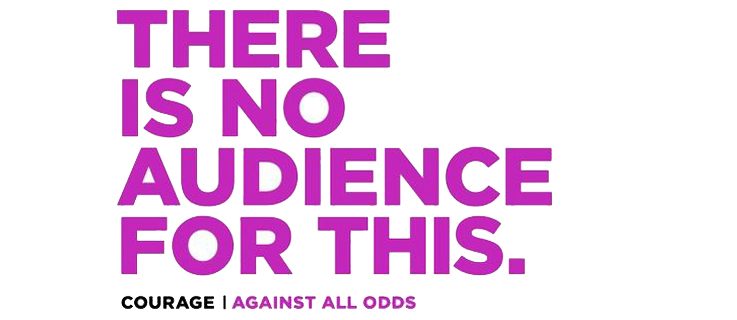2017 does not shape up to have a record German showing at the Berlinale. While 2016 was a great overall Berlinale year with Meryl Streep as opinionated jury president, a George Clooney-starring new Coen brothers film as opener, and Fassbinder-cum-Hollywood cinematographer Michael Ballhaus as the homage honouree --an outstanding German festival year it wasn’t by any stretch.
One German debut feature was in Competition last year and did not make it abroad. (Of course, TONI ERDMANN later made up for any perceived weakness in perpetuity.)
But as in previous years, if you dig deeper this February, the German gems start to shine through, among the 399 films seen by 300000 visitors.
As expected, the Berlinale is back in fine fighting form. "Courage. Against all Odds" is the youthful and clearly positioned slogan of the Berlinale Talents 2017. And only quirky festival director Dieter Kosslick can program Terminator 2 and Wolverine 3 alongside the freshest political global arthouse (with lots of post-colonial South American fare) and manage to make a statement.
Kosslick also affords me the once-in-a-lifetime headline “Brendemühl opens Berlinale". Etienne Comar’s debut feature Django stars my Spanish-German relative Àlex Brendemühl (interview to follow).
In the drama, Reda Kateb (recently in Wenders’ Beautiful Days of Aranjuez) portrays musician Jean “Django” Reinhardt (1910-1953), founder of the so-called gypsy swing and a trailblazer of European jazz. Persecuted as a Sinti, he fled Nazi-occupied Paris in 1943. Django, which Kosslick is pitching as “a very sensitive, delicate French film, a stirring story of survival,” (Stimme.de) is also a film about valiantly facing repression. You fill in the current affairs commentary.
The message of #Berlinale17 can be boiled down to global dystopia versus individual utopia. The failure of the big systems, capitalism and communism, vs. visionary, renegade personalities like artists Reinhardt, Beuys, (Canadian) Maud Lewis, and Giacometti.
Beuys is Andres Veiel’s (Black Box BRD; If Not Us, Who) new doc about the Düsseldorf über-artist and plays in Competition. It might win the new Berlinale Doc Award or a Golden Bear as one of three German films (out of 18 overall) competing for the top honour. Announced as not your average bio pic, Veiel wants to give new insights into Beuys’ creative universe, beyond the felt and fat and “everyone is an artist” quote. He collages vast and previously unseen footage with what he calls “onion dramaturgy" into a personal but transcending depiction of the man, the artist, and his ideas in the cultural revolution of the 1960s. If Veiel and his producer Thomas Kufus (Gerhard Richter Painting) succeed, we could see a timely documentary portrait of radical political renewal and lasting artistic influence. Again, implicit commentary on the current state of the world is most definitely intentional. As Veiel said in a recent interview with Filmportal: “I like it when people act completely differently than is expected of them."
Thomas Arslan (Dealer) is back with Bright Nights. Arthouse fans are holding their breath to see how the Berlin School director will fare four year after his (Canadian-shot) Gold, which was met with mixed reviews. In Bright Nights, a father tries to rekindle his relationship with his son after years of absence and lack of communication. He takes him on a road trip across Norway, hoping it is not too late. Again, Kosslick promised the Berliner Zeitung “a sensitive relationship portrait, very bare-bone, very intense.” No big stars, no big buzz until now. For more context, also look to the Perspektive Deutsches Kino at Berlinale for Arslan student Cavo Kernich with his refugee drama Mikel.
New German Cinema veteran Volker Schloendorff (The Tin Drum), a friend of Cannes, decided to show his latest Return to Montauk, which he co-wrote with Brooklyn’s Colm Tóibín, in the Berlinale competition (The Berlinale showed his war drama Diplomacy last year.) During a book tour in the United States, Max (20th-century Swiss author Max Frisch, portrayed by Stellan Skarsgård) meets and falls in love with a young woman. Many years later, he returns to the United States, hoping to reunite with his former lover, played by Nina Hoss.
The Berlinale Special hosts Raoul Peck’s highly anticipated The Young Karl Marx (German Trailer) with August Diehl, which charts Marx and Engels’ path towards the Communist Manifesto. It is said to marry historical drama with the intimate portrait of a competitive friendship. The fortuitious programming is showing it alongside Peck’s Oscar-nominated James Baldwin documentary I Am Not Your Negro. The film won the People’'s Choice Award when it premiered at the 2016 Toronto International Film Festival and seems more relevant by the minute.
